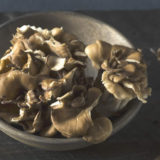Finally accepted as common knowledge, there is little doubt that what we eat impacts our health. Armed with this recognition, those with specific health concerns can seek out foods that help support a particular body system. For anyone wanting to protect his or her cardiovascular well-being as much as possible, watermelon consumption appears to be a supreme food choice.
As the number one cause of death in the United States, heart disease warrants every preventative effort available. The most common heart disease is coronary heart disease, which is often caused by atherosclerosis – and is typically discovered after a heart attack. According to the U.S. Centers for Disease Control and Prevention, the likelihood of developing coronary heart disease can be reduced by taking steps to prevent and control factors that increase risk. Accordingly, making smart food choices can go a long way in reducing the risk of developing or aggravating coronary heart disease.
Experts agree that a healthy diet and active lifestyle are the best weapons available to fight heart disease. In general, a heart-healthy diet consists of the following strategies:
- Emphasize fruit, vegetables and high-fiber foods.
- Eat fish, lean meats and poultry without skin or added fat.
- Prepare food without adding saturated or trans fats.
- Consume fat-free, 1 percent and low-fat dairy products.
- Limit foods with partially hydrogenated vegetable oils.
- Refrain from eating foods high in dietary cholesterol.
- Avoid beverages and foods with added sugars.
- Consume foods low in sodium.
- Minimize alcohol consumption.
- Stay within reasonable portion sizes.
In addition to these healthful dietary practices, a favorite summertime fruit increases the body’s defenses against heart disease. A member of the Cucurbitaceae family, watermelon is related to the cantaloupe, squash and pumpkin, other plants that also grow on vines on the ground. Watermelon’s reputation as being good for the cardiovascular system is likely due to it being an exceptionally rich source of two heart-healthy nutrients: lycopene and citrulline.
- Lycopene – A member of the carotenoid family of phytochemicals, lycopene is the natural pigment responsible for the deep red color of several fruits, most notably tomatoes. Lycopene helps prevent heart disease by inhibiting free radical damage to low-density lipoprotein (LDL) cholesterol. Before cholesterol can be deposited in the plaques that harden and narrow arteries, it must be oxidized by free radicals. With its powerful antioxidant activity, lycopene can prevent LDL cholesterol from being oxidized.
- Citrulline – An amino acid, citrulline helps to dilate arteries. Among plant foods in the human diet, watermelon is the only significant source of citrulline. As published in a 2011 edition of the American Journal of Hypertension, researchers from Florida tested a citrulline supplement made from watermelon. After taking the supplement for six weeks, the blood pressure of participants with mild hypertension was reduced.
Besides lycopene and citrulline, watermelon has high levels of potassium, Vitamin A, Vitamin B and Vitamin C – all of which contribute to the heart’s well-being.
From the University of Kentucky, another recent study about watermelon suggests that this sweet fruit is good for the heart. In this animal study, researchers found that compared to plain water, watermelon juice helped lower the risk of atherosclerosis – hardening of the arteries. Since atherosclerosis is a major contributing factor to heart disease, watermelon represents an ideal food for supporting the heart’s health.
Between how we eat, cook and exercise, there are many ways a lifestyle can favor a healthy cardiovascular system. However, the heart benefits of the humble watermelon have been largely overlooked. The secret is now out and, thanks to the academics who have studied watermelon, we can now confidently fall in love with this big, red, juicy, heart-healthy super-fruit.




